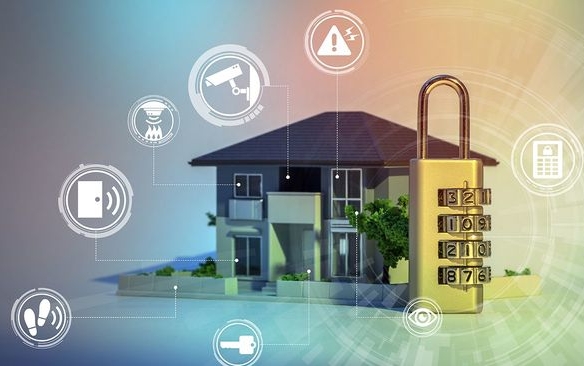Have you ever wondered how your home insurance premium is affected by utilities? From utility maintenance to upgrades and insurance benefits, this article helps you understand the role of utilities in home insurance. Get a look at how insurers evaluate utilities in a home and how it increases or decreases costs.
What are Utilities in the Context of Home Insurance?
Utilities are essential systems that are necessary for everyday life, including gas, electricity, water, sewage, and internet. There are companies, such as Utility Bidder, that help you get the best deals.
- They keep us safe and comfortable.
- They power appliances.
- They keep our homes warm and cool.
- They ensure we have clean water.
- They provide us with ways to communicate.
It’s important to maintain these utilities for home insurance purposes. Well-maintained systems minimise the risk of incidents that reduce insurance premiums, such as gas leaks, electrical fires, and water damage. Homeowners must take actionable steps, like timely repairs and regular checks, to ensure safety and reduce potential insurance costs. You can improve your insurance benefits and protect your home by prioritising utility maintenance.
Types of Utilities and Their Impact on Home Insurance
- Electricity
Modern electrical systems have the potential to lower insurance premiums because they are more efficient and safer. They must be maintained regularly to ensure they stay safe and prevent expensive claims. General risks include overloaded circuits, faulty wiring, and outdated fuse boxes.
Some insurers give discounts to homes with updated electrical systems. They could also ask for electrical safety certificates. You must upgrade to modern systems and perform regular inspections to reduce risks and increase insurance benefits.
- Gas
You need gas safety checks and certifications for home insurance in the UK (United Kingdom). Certified Gas Safe engineers ensure gas appliances follow safety standards, which lowers the risk of leaks and explosions. Perform regular inspections to ensure that appliances function correctly, thereby keeping the occupants and property safe.
Insurers usually need proof of yearly gas safety checks to validate policies. Homeowners must schedule inspections well in advance and keep records of them for insurance reasons. Complying with these standards increases safety and could lower your insurance premiums.
- Water
Plumbing systems are important for home insurance, especially in cities like Melbourne where leak detection services play a critical role. Regular assessments ensure systems function at their best and help avoid water damage, which can raise premiums.
These precautions protect your property and show insurers that you’re diligent. This can lead to reduced insurance premiums. Maintain systems regularly and fix problems as they happen to strengthen your home against any water-based accidents.
- Heating Systems
Home insurance is affected by heating systems, such as electric heaters and central heating. You can mitigate risks with regular safety checks and maintenance. Heating-associated claims are usually caused by faulty systems and poor maintenance. Homeowners must schedule yearly system inspections and fix problems as soon as they happen so they can maintain insurance coverage.
Consider upgrading to modern and energy-efficient heating systems to qualify for possible insurance discounts. Well-maintained heating systems reduce insurance premiums and ensure safety.
- Internet and Communication Systems
There are smart home devices that boost home security, like smart locks and security cameras. They let you monitor and control systems remotely, which enhances protection against intruders. Many insurers offer discounts to homes with these security systems.
These systems reduce the chance of property damage and burglary, which leads to reduced insurance premiums. Homeowners who invest in smart home technology boost their security and save on insurance costs.

Why Utility Maintenance is Crucial for Home Insurance
Frequent system inspections and services are crucial to ensure your home’s utilities are functional and safe. Routine checks will spot possible problems early and let you deal with them before they become too expensive and cause accidents. Scheduled maintenance helps to prevent breakdowns and prolongs the lifetime of utility systems. This will save on long-term costs.
Maintenance records and documentation are vital in showing insurers that your utilities are updated and well-maintained. In case of any unforeseen accidents, you can back your insurance claim with detailed records of inspections, repairs, and upgrades. Proactive homeowners tend to have lower premiums because they pose a lower risk. This means that keeping detailed maintenance records could lead to lower insurance costs.
Well-maintained utilities play a crucial role in lowering insurance premiums. When insurers calculate premiums, they take the conditions of your home’s utilities into consideration. Homes with well-kept utilities have lower insurance premiums because they are considered lower-risk. Homeowners who invest in regular maintenance and upkeep have safer and more efficient utilities, as well as lower insurance costs.
Common Utility-Related Claims and How to Avoid Them
The most common utility-related claims include burst pipes and electrical fires. Extremely cold temperatures can cause pipes to burst. Electrical fires are caused by overloaded circuits or faulty wiring. These incidents cause property damage and present safety risks.
Ensure that regular electrical inspections are performed and circuits aren’t overloaded. Insulate pipes to keep them from freezing and provide enough heating in cold weather. Detect problems early with smart home systems and leak detectors.
Prevent expensive damage with regular maintenance checks that look for possible issues early on. Upgrade to modern systems that meet the necessary safety standards to lower the chances of accidents. Prioritise regular inspections and invest in proactive measures to protect your home and reduce insurance risks.
Utility Upgrades and Home Insurance Benefits
There are substantial benefits for your insurance coverage when you upgrade to modern utility systems in your home. Improve the safety and efficiency of your property by investing in modern plumbing, electrical, heating, and security systems. This lowers the risk of accidents that can lead to expensive insurance claims, such as fires, leaks, or break-ins. Upgraded systems have advanced features that improve the monitoring and control of your home utilities and mitigate risks.
Insurance providers in the UK tend to offer discounts and incentives to homeowners who have upgraded to modern utility systems. By investing in high-quality systems and performing preventative maintenance, you pose a lower risk to insurers, which could reduce your premiums. Some insurers provide incentives for upgrades, like discounts for features such as leak detection devices or smart security systems. Contact your insurance provider for more information about possible discounts related to upgraded utility systems.
How Insurers Evaluate Utilities in a Home
Insurers assess utility systems according to their age, condition, and safety. Poorly maintained and older systems pose a higher risk for accidents, which could increase premiums. Ensure our information is accurate. Regularly maintain and upgrade systems to mitigate risks and get lower premiums.
Incorrect details can cause your claims to be rejected or create gaps in your coverage. Detailed information on utility systems is necessary for accurate assessments.
Conclusion
It is important to maintain and update your utility systems for them to function optimally and save costs. Modern utility systems pose less risk to insurers, which leads to reduced premiums.




